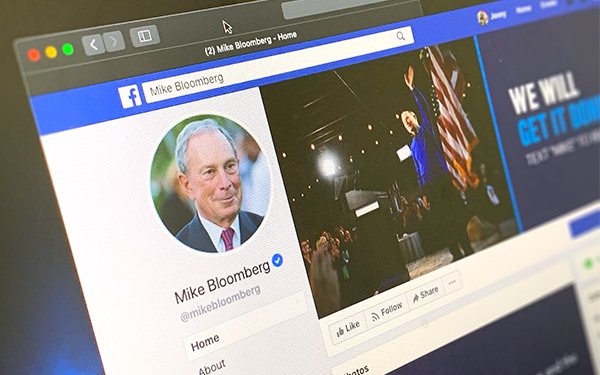
Courting more controversy ahead of this
year’s primary and presidential elections, Facebook has decided to let influencers spread branded content paid for by political campaigns.
The change in policy follows a story in The New York Times this
week. It detailed paid partnerships between Mike Bloomberg’s presidential campaign and some top Instagram influencers.
As The Times reported, the partnerships are being brokered
by Meme 2020 -- a new company cofounded by Jerry Media CEO Mick Purzycki. Jerry Media is best known for its controversial
work with social influencers to promote the fated Fyre Festival in 2017.
advertisement
advertisement
Facebook is not giving paid influencers and their political partners free rein. Rather, the company will require
influencers to clearly label paid posts as a “paid partnership.”
“We’re allowing U.S.-based political candidates to work with creators to run this content, provided the
political candidates are authorized and the creators disclose any paid partnerships through our branded content tools,” Facebook stated.
However, Facebook is not categorizing such
sponsored content as standard advertising. “Branded content is different from advertising,” the company said this week.
As such, Facebook will not subject such content to its
standard policies for political ads. For example, the ads will not be catalogued in the platform’s Ad Archive.
Along with Snap Inc. and Twitter, Facebook maintains such an ad library to
promote transparency and allow anyone to track political messaging across its platform.
In the past, Facebook has said such transparency tools are intended to increase accountability and
responsibility, as well as cut down on foreign interference in domestic elections.
Facebook has required advertisers to seek authorization before running ads about social issues, elections or
politics since 2018, while it has insisted that Pages disclose the source of funding behind political ads since 2017.
Facebook is already under a spotlight for its controversial
decision not to
block political ads containing false and misleading information.